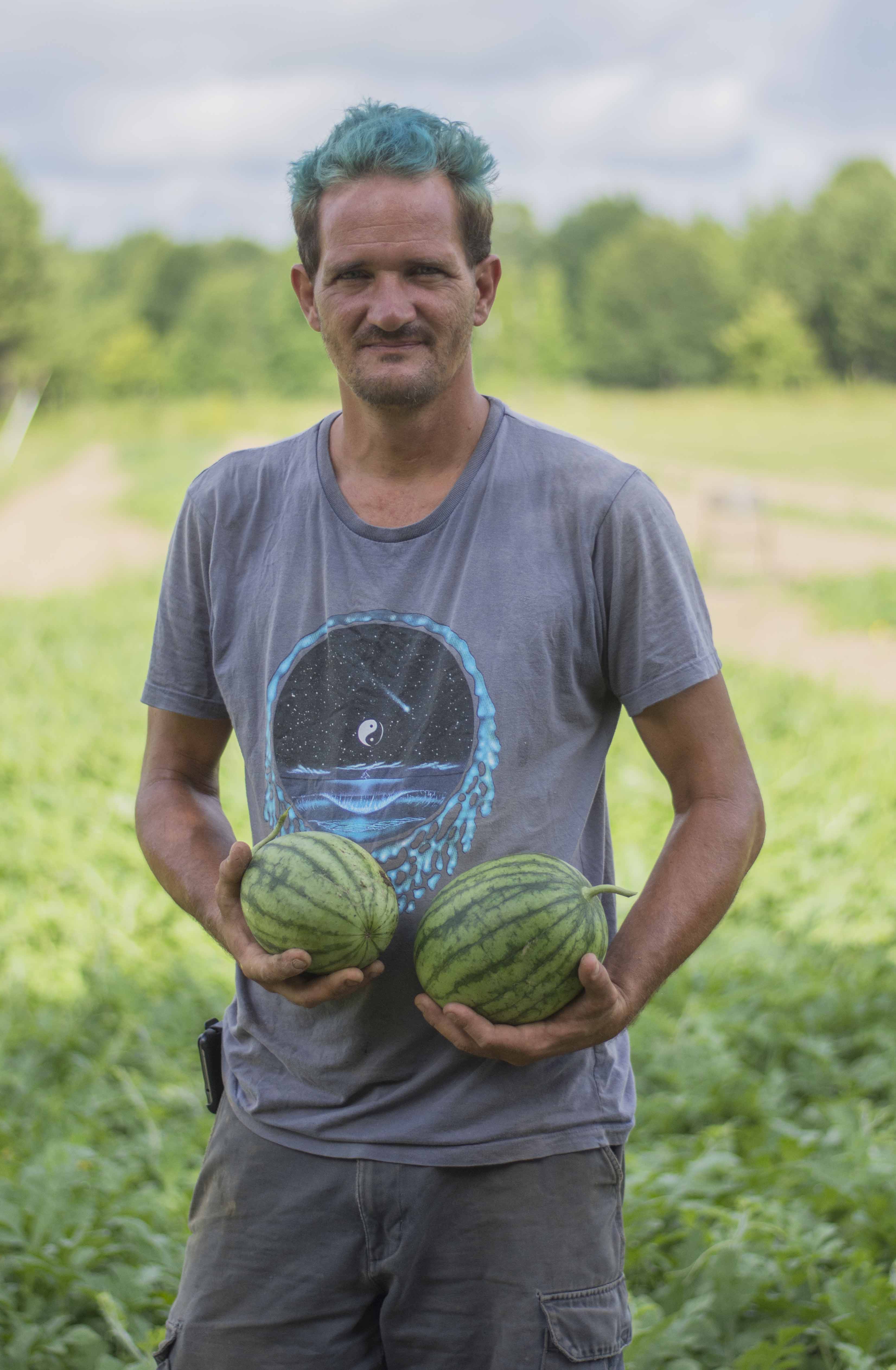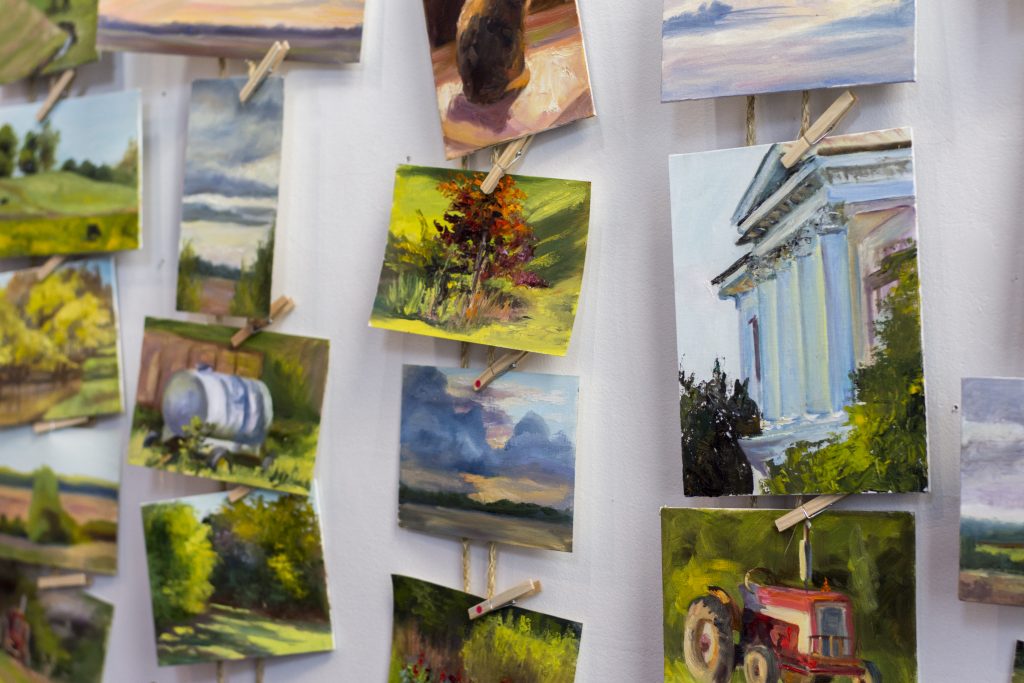The Daily Mississippian: What’s your position at the farm?
Daniel Zimmanck: Field manager of Yokna Bottoms Farm.
DM: What are you growing right now?
Zimmanck: Sweet potatoes, squash, purple hull peas, green beans, dragon’s tongue, rattlesnake. Those are all beans. We have like 15 types of peppers going. Everything from really sweet peppers to purple ghost pepper. We are also growing peppers for another person who makes pepper sauce; we’re not going to sell those to anyone but him. Those are all seriously hot. Then we have our tomatoes, okra, cantaloupe, watermelon, squash, winter squash.

DM:Where is all the produce grown here going to go?
Zimmanck: Mostly to the markets, the farmers market. We do have shareholders that every week they get a share of the harvest. They purchase a share at the beginning of the year or the end to help sustain ourselves over the winter. When they purchase it in the beginning of the year, that helps us to order seeds, prepare the fields and what not. But then they get a portion of the harvest for the 32 weeks that we’re open. What they don’t get from us, we sell to everyone else at the market. The Snackbar, the Ravine, they get vegetables from us. Sometimes other restaurants do too. We don’t ship anything out of the state or out of the county.
DM: Why do you choose to stay local with who you provide produce to?
Zimmanck: [Our owner] wanted to benefit the county he was living in. He wanted to produce an organic farm. We are a certified naturally grown farm, not organic. I mean, we are organic, we just don’t jump through hoops and pay out the money. It’s pretty much the same. When he started, the farm bureau, or whatever they’re called, they said it couldn’t be done. Organic farms couldn’t be done around here. They said this was the wrong area. You needed all the chemicals and whatnot. He proved them wrong. He was the first organic farm in the area nine years ago. He hasn’t missed a market yet since he’s been going.

DM: Do you think it’s better to farm the organic way?
Zimmanck: Oh, yes. You know, you’re not destroying the soil. You’re not destroying the ground. You can see the farm beside us, they’re growing only sunflowers for one purpose, one day. The opening day of dove hunting. That’s the only reason. But you can see the effects of roundup on the ground next to them. It’s just all barren and brown. He does that on his field and we have a 20 foot breaker of trees beside us and him to prevent his crap from coming over here. And you can see a difference after he sprays in the trees on our side and his. If we didn’t have that, we wouldn’t be able to plant where we plant.
DM: How important is it for restaurants to source their food locally?
Zimmanck: It’s real important. It helps the farmer who is benefiting the economy and it shows people in the community that there is quality food here and they don’t have to go to big box stores to get it. We have healthy food growing right here in the county.

DM: Is it harder for farmers and restaurants to source or deliver produce this way?
Zimmanck: We don’t overcharge anybody. In fact, the restaurants, they get a mark down from the market price. We sell a watermelon for about three to five dollars, and that’s not a bad price for an organic watermelon. You can go to Walmart or Kroger and you’d get a personal watermelon like this for five dollars and it’s not organic. You don’t know what’s been done to it. We invite people to come out to the farm and see what’s going on. You can look through our stuff and see what we have. You’re not going to find any major chemicals anywhere. When we do have to spray we spray pyrethrin or spiniced. One is plant derived and one is fungus derived and they’re certified organic.















